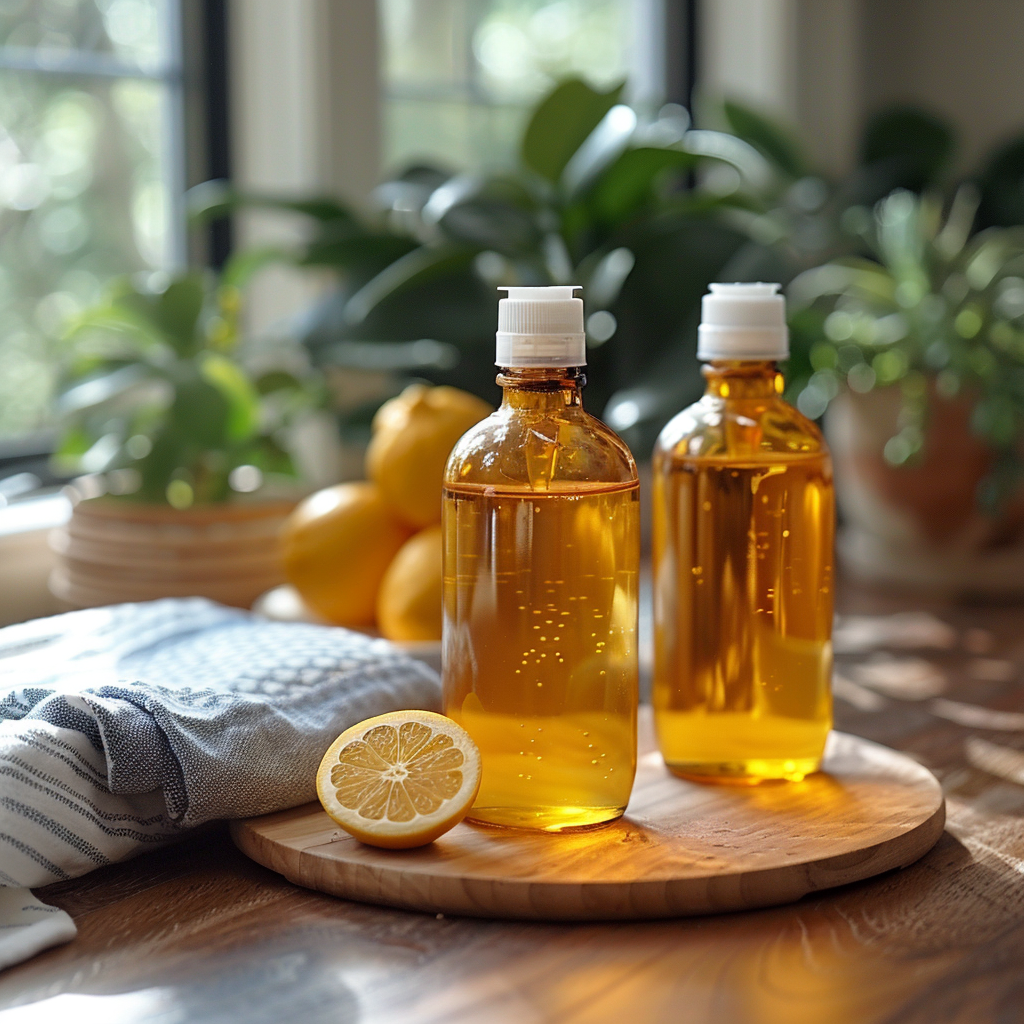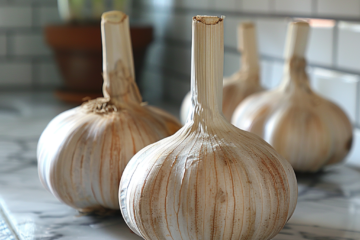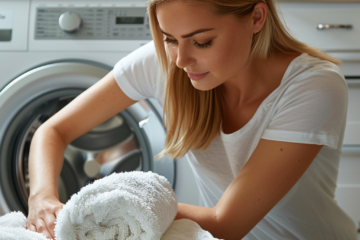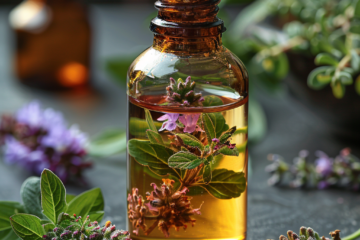In today’s world, where cleanliness and hygiene are of utmost importance, disinfecting surfaces has become a routine part of our lives. With the rise in demand for effective cleaning solutions, the trend of making homemade disinfectants using natural ingredients has gained significant traction. In this article, we’ll explore how you can create a powerful homemade disinfectant using just two simple ingredients.
Importance of Disinfecting Surfaces
Maintaining clean and germ-free surfaces is crucial for preventing the spread of illnesses, especially in high-traffic areas such as homes, schools, and workplaces. Disinfecting surfaces helps eliminate harmful bacteria and viruses, reducing the risk of infections and promoting overall health and well-being.
Environmental and Health Concerns with Commercial Disinfectants
While commercial disinfectants are readily available in the market, they often contain harsh chemicals that can be harmful to both the environment and human health. These chemicals may cause respiratory problems, skin irritation, and contribute to indoor air pollution. Additionally, the production and disposal of commercial disinfectants can have a negative impact on the environment.
DIY Trend and Benefits
The DIY (do-it-yourself) trend has gained popularity in recent years as more people seek natural and eco-friendly alternatives to conventional products. Making your own disinfectant not only allows you to control the ingredients and avoid harmful chemicals but also saves money in the long run.
Ingredients Needed for Homemade Disinfectant
To make your own homemade disinfectant, you’ll need two simple ingredients that are readily available in most households: vinegar and hydrogen peroxide.
Vinegar
Vinegar, a staple in many kitchens, is known for its acidic properties, making it an effective cleaner and disinfectant. It can kill a wide range of germs, including bacteria and viruses, making it an ideal ingredient for homemade disinfectant solutions.

Hydrogen Peroxide
Hydrogen peroxide is another common household item that serves as a powerful disinfectant. It works by releasing oxygen when applied to surfaces, which helps kill bacteria, viruses, and other pathogens. Hydrogen peroxide is particularly effective against mold and mildew.
Properties of Vinegar and Hydrogen Peroxide as Disinfectants
Both vinegar and hydrogen peroxide possess antimicrobial properties that make them effective at killing germs on surfaces. They are non-toxic and safe to use around children and pets, unlike many commercial disinfectants that contain harmful chemicals.
Antimicrobial Properties
Vinegar and hydrogen peroxide disrupt the cell membranes of bacteria and viruses, leading to their destruction. This makes them highly effective at disinfecting surfaces and preventing the spread of infections.
Effectiveness Against Bacteria and Viruses
Studies have shown that vinegar and hydrogen peroxide are effective at killing a wide range of bacteria and viruses, including E. coli, Salmonella, Influenza, and the common cold virus. They offer a natural and eco-friendly alternative to harsh chemical disinfectants.
Safety Precautions When Using Homemade Disinfectant
While vinegar and hydrogen peroxide are safe to use, it’s important to take proper precautions to ensure their effectiveness and avoid any potential risks.
Proper Dilution Ratios
Both vinegar and hydrogen peroxide should be diluted with water to achieve the desired concentration for disinfecting surfaces. Using them undiluted can be too harsh and may damage certain materials.
Avoid Mixing with Other Chemicals
It’s essential to avoid mixing vinegar or hydrogen peroxide with other cleaning products, especially bleach. Combining these substances can produce harmful fumes and chemical reactions.
How to Make Homemade Disinfectant
Making your own homemade disinfectant is quick, easy, and cost-effective. Here’s a simple recipe to get you started:
Vinegar and Hydrogen Peroxide Disinfectant Spray
Mix equal parts of white vinegar and hydrogen peroxide in a spray bottle.
- Add a few drops of essential oil for fragrance, if desired.
- Shake well to combine.
Spray the solution onto surfaces and let it sit for a few minutes before wiping clean with a cloth or sponge.
Usage Tips and Recommendations
Homemade disinfectant can be used on a variety of surfaces, including countertops, door handles, bathroom fixtures, and kitchen appliances. It’s safe to use on most materials, including stainless steel, glass, and plastic.
Storage of Homemade Disinfectant
Store your homemade disinfectant in a dark, cool place away from direct sunlight to preserve its effectiveness. Make sure to label the container properly and keep it out of reach of children and pets.
Cost-Effectiveness Compared to Commercial Products
Making your own disinfectant at home is significantly more affordable than purchasing commercial products. With just a few simple ingredients, you can create a powerful cleaning solution that’s effective and budget-friendly.
Environmental Impact
By making your own disinfectant using natural ingredients, you can reduce your carbon footprint and minimize the use of harmful chemicals. This contributes to a healthier environment for future generations.
Testimonials and User Experiences
Many people have shared their positive experiences with homemade disinfectants, citing their effectiveness, affordability, and peace of mind knowing they’re using safe and eco-friendly products in their homes.
FAQs
Can I use homemade disinfectant on all surfaces?
Homemade disinfectant is safe to use on most surfaces, but it’s always best to test a small area first to ensure compatibility.
Is homemade disinfectant as effective as commercial products?
Yes, homemade disinfectants made with vinegar and hydrogen peroxide are just as effective, if not more so, than many commercial products.
Are there any surfaces or materials I should avoid using homemade disinfectant on?
Avoid using homemade disinfectant on porous surfaces such as marble or granite, as vinegar can etch and damage these materials over time.
Can I add essential oils for fragrance?
Yes, you can add a few drops of essential oils such as lavender or tea tree oil for a pleasant fragrance and added antimicrobial properties.
How long does homemade disinfectant last?
Homemade disinfectant can last indefinitely if stored properly in a sealed container away from direct sunlight.



